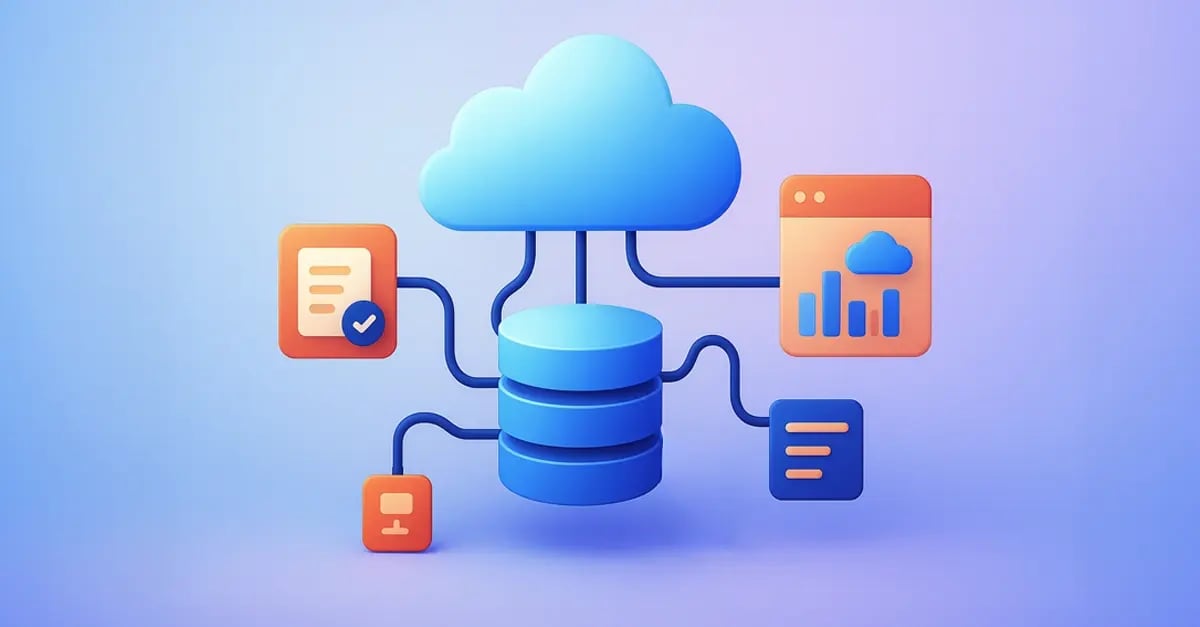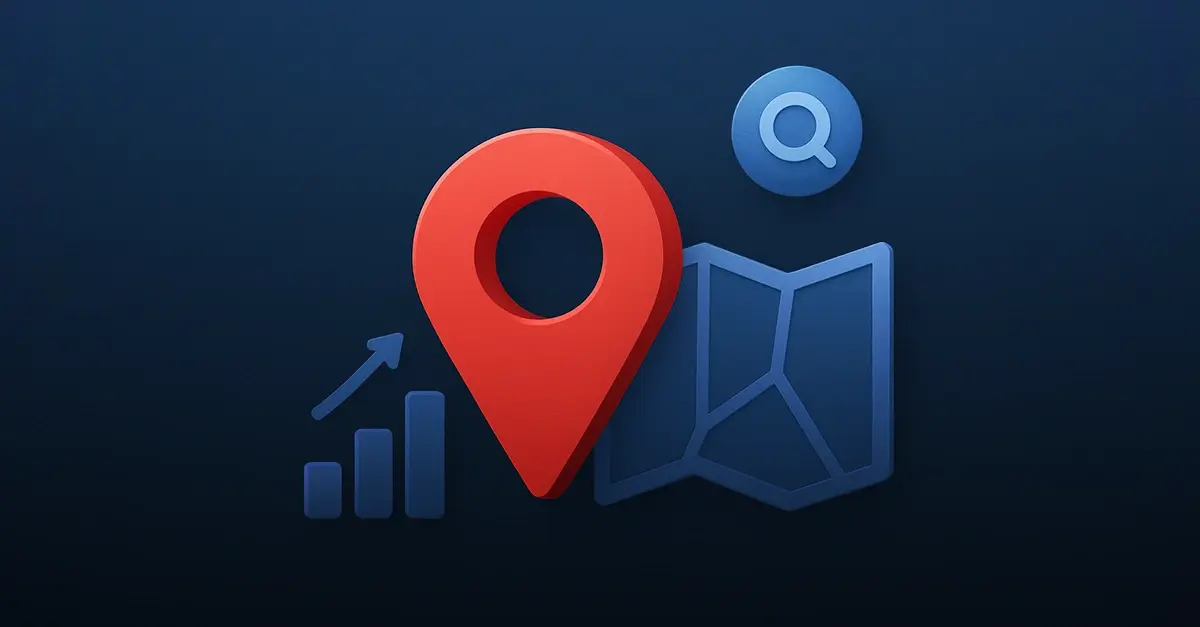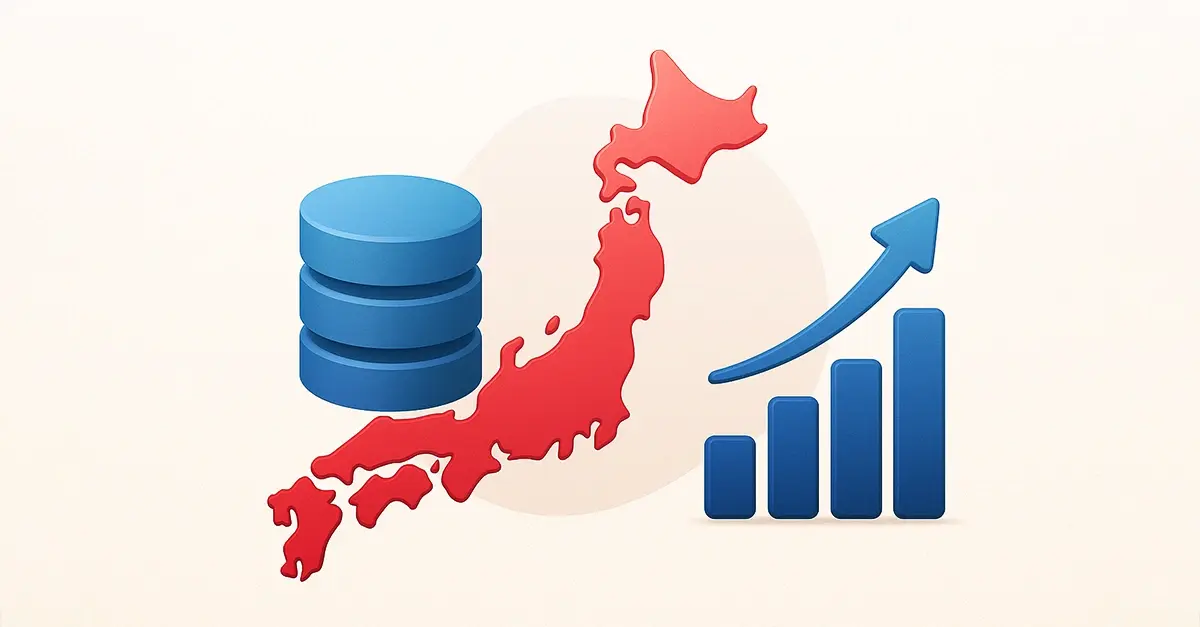In a data-driven economy, businesses increasingly rely on digital infrastructure that can scale, adapt, and deliver insights efficiently. Among the many innovations enabling this transformation, Database as a Service (DBaaS) has become a cornerstone of modern data management. It allows organizations to access database capabilities through the cloud without maintaining physical servers or managing updates internally.
Yet as companies become more data-dependent, storing information is no longer enough. The real challenge lies in accessing accurate, structured, and up-to-date external data that fuels decision-making and customer intelligence. This is where Data as a Service (DaaS) emerges as the next logical step.
This article explains what Database as a Service is, how it works, and how DaaS solutions like InfobelPRO expand on this foundation by providing direct access to ready-to-use business and location data.
What Is Database as a Service (DBaaS)?
Database as a Service (DBaaS) is a cloud-based model that delivers database functionality without requiring organizations to install, configure, or maintain hardware and database software. Instead, a third-party provider hosts the database, manages infrastructure and updates, and ensures performance and availability.
Popular examples of DBaaS platforms include:
- Amazon Relational Database Service (RDS)
- Google Cloud SQL
- Microsoft Azure Database
- MongoDB Atlas
Through these services, users can create, query, and scale databases via the cloud. They gain high availability, automated backups, and flexible scalability, all while reducing internal IT overhead.
DBaaS solutions are typically used by software engineers, IT architects, and data professionals who need consistent access to structured data systems without maintaining physical databases.
Why Businesses Turn to Managed Database Services
The growth of DBaaS reflects the broader shift to managed cloud services. For many organizations, traditional database management has become too complex and resource-intensive.
Key benefits of DBaaS include:
- Reduced operational burden: No need to manage servers, patches, or configurations.
- Scalability on demand: Capacity adjusts automatically based on data volume or user activity.
- Predictable costs: Pay-as-you-go pricing simplifies budgeting.
- Data security and reliability: Enterprise-grade encryption, replication, and uptime guarantees.
This model is particularly attractive for companies developing digital products, analytics tools, or enterprise software that depend on structured and transactional data.
However, DBaaS solves only half the challenge. It helps organizations manage their own data efficiently, but it does not help them obtain the high-quality external data required to power marketing, analytics, and business intelligence.
The Limitation — Having a Database Doesn’t Mean Having Data
Owning a powerful, cloud-hosted database does not guarantee access to valuable information. Many businesses find themselves with modern data infrastructure but limited visibility into the external market.
Consider common challenges:
- Fragmented data sources: Public and private datasets are often incomplete or inconsistent.
- Manual data acquisition: Gathering firmographic or location data requires ongoing effort.
- Data aging and decay: Company information, addresses, and contacts change frequently.
- Compliance concerns: Not all external data sources meet privacy and regulatory standards.
The result is a gap between database capability and data availability. Organizations may have the tools to store and query data but lack the structured, verified content to fill those systems meaningfully.
This distinction is what gives rise to Data as a Service (DaaS)—a model designed to supply complete, high-quality datasets ready for integration.
From Database to Data as a Service (DaaS): The Next Step in Data Value
Data as a Service (DaaS) builds upon the principles of DBaaS but focuses on content rather than infrastructure. Instead of providing a database engine, DaaS providers deliver curated, continuously updated datasets accessible through APIs or secure downloads.
In this model, organizations don’t need to collect, clean, or standardize data themselves. Instead, they connect to a service that maintains the data lifecycle for them.
Core features of DaaS include:
- Access to verified datasets via APIs or file delivery.
- Real-time updates for freshness and accuracy.
- Customizable data attributes and filters.
- Built-in compliance with data privacy laws.
Example use cases:
- CRM enrichment with firmographic and contact details.
- Market intelligence and competitive analysis.
- Location-based analytics and mapping.
- Lead verification and segmentation for marketing.
While DBaaS provides the infrastructure for storing data, DaaS ensures that the data itself is reliable, structured, and actionable.
Database as a Service vs Data as a Service
|
Feature |
Database as a Service (DBaaS) |
Data as a Service (DaaS) |
|
Primary focus |
Infrastructure and database management |
Curated, ready-to-use data delivery |
|
End users |
Developers, IT teams |
Business, marketing, and analytics teams |
|
What is managed |
Database engine, storage, backups |
Data collection, validation, and enrichment |
|
Value proposition |
Reduces infrastructure complexity |
Provides high-quality, actionable information |
|
Examples |
AWS RDS, Azure SQL, MongoDB Atlas |
InfobelPRO, Clearbit, Crunchbase |
Both models coexist within modern organizations. DBaaS forms the operational backbone, while DaaS supplies the verified content that fuels strategic decisions.
How InfobelPRO Delivers Data as a Service
InfobelPRO provides one of the most comprehensive global Data-as-a-Service platforms available today. Its dataset includes more than 360 million business records and 172 million points of interest across industries and geographies.
The platform delivers data through flexible APIs and custom datasets, enabling companies to enrich internal systems, verify business information, and analyze market opportunities without managing complex acquisition pipelines.
Key capabilities:
- Comprehensive Global Coverage
InfobelPRO maintains business and location data from virtually every country, giving organizations a consistent global dataset that can be filtered by region, sector, or company type. - Rich, Structured Attributes
Each record can include multiple attributes such as company name, address, phone number, industry classification, business type, geolocation, and contact information. - Continuous Data Updates
The InfobelPRO database is refreshed daily, weekly, or monthly depending on the data source, ensuring maximum accuracy and reliability. - API Access and Integration
Developers and data teams can integrate InfobelPRO’s data directly into CRMs, ERP systems, or analytical tools via REST APIs. This allows for real-time data enrichment and verification without manual processing. - GDPR and Compliance Assurance
InfobelPRO prioritizes lawful data sourcing and global compliance with privacy regulations such as GDPR and CCPA, enabling organizations to maintain ethical and compliant data practices.
Business benefits:
- Streamlined access to high-quality data without internal data management overhead.
- Improved CRM accuracy and lead scoring through enrichment.
- Enhanced territory planning and mapping accuracy.
- Faster market research and business development insights.
In essence, InfobelPRO transforms external data into a service layer—removing the friction of acquisition and enabling companies to focus on analysis, strategy, and execution.
When to Use DBaaS vs DaaS
Both DBaaS and DaaS play critical roles in the data ecosystem, but their purposes differ:
- Choose DBaaS when you need to manage and store proprietary internal data, such as customer transactions, product inventories, or system logs.
- Choose DaaS when you need accurate external data—verified company profiles, addresses, or points of interest—to enrich and extend your internal datasets.
For many organizations, the most effective approach combines both:
- DBaaS provides a scalable environment for internal data operations.
- DaaS feeds those systems with verified external intelligence to improve business performance and insight accuracy.
How DBaaS and DaaS Work Together
Modern data architectures often blend multiple “as-a-service” layers. A CRM or analytics platform may rely on a DBaaS backend for storage while simultaneously calling a DaaS API to enrich its records.
For example, a logistics company could:
- Host its delivery tracking system on AWS RDS (DBaaS).
- Use InfobelPRO’s DaaS API to verify customer addresses, classify business types, and map points of interest.
The integration ensures both operational performance and contextual accuracy—key ingredients for scalable digital transformation.
Why DaaS Is Becoming a Competitive Advantage
Data quality has become a direct determinant of business performance. Inaccurate or incomplete information can lead to wasted resources, poor targeting, and flawed analytics.
By adopting a Data-as-a-Service model, companies:
- Gain immediate access to validated global datasets without lengthy acquisition processes.
- Reduce costs related to data cleaning, maintenance, and compliance management.
- Ensure consistent standards across systems and teams.
- Improve speed-to-insight across marketing, sales, and analytics functions.
As markets globalize, DaaS provides the agility required to access trustworthy information across borders—something traditional databases alone cannot deliver.
InfobelPRO: Powering Data Delivery for the Modern Enterprise
InfobelPRO’s Data-as-a-Service platform is designed for organizations that require continuous access to global business and location intelligence.
Through its APIs and custom datasets, companies can:
- Enrich customer databases with firmographic and geographic data.
- Validate addresses and business details at scale.
- Integrate verified data directly into enterprise systems.
InfobelPRO enables a shift from static databases to dynamic, connected intelligence. It brings together the reliability of database infrastructure with the strategic advantage of curated, compliant data delivery.
Conclusion
Database as a Service has simplified how organizations manage and scale data infrastructure. However, Data as a Service represents the next stage—providing the actual information businesses need to operate intelligently.
While DBaaS helps you manage your data, DaaS ensures you have the right data.
InfobelPRO bridges this evolution by delivering global, compliant, and continuously updated data directly through APIs. Whether enriching a CRM, powering analytics, or verifying business identities, InfobelPRO ensures your data ecosystem remains accurate, connected, and ready for action.






Comments